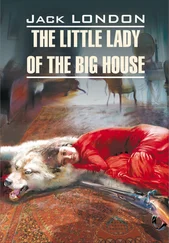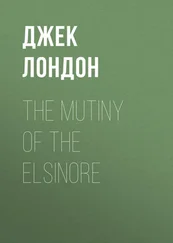Witold’s commanding officer, Major Mieczysław Gawryłkiewicz, showed up the next morning in his open-top Fiat jeep to order the troops into position south of the town. Gawryłkiewicz told Witold to stick to marching on the roads, instead of the woods. They’d be open targets, Witold realized, but he followed orders. They’d hardly set off when a German fighter buzzed over them, only to return a few minutes later with half a dozen bombers that proceeded to attack the column. Witold’s unit scrambled off the road, and pulled their horses down into the ditch as the bombs fell. The aircraft returned to strafe them with machine guns, then soared away. No one was hurt, but they had tasted what was to come. 21
***
Witold watched the inferno consuming the center of Piotrków Trybunalski as he passed by with his men that evening. He set up camp a few miles away on a low rise facing west toward Germany and then took eight of his troopers on a scouting patrol. From the woods, he caught his first glimpse of the Germans: an armored reconnaissance unit deployed in a village across a narrow stream. He rode back, set a guard, and then watched the flames of the burning city light the sky. The fighting would begin tomorrow. His men, knowing this might be their final night, talked of families or loved ones at home. One by one they settled down to rest. 22
What Witold couldn’t know was that his detachment had been positioned directly in the front of the main thrust of the German First and Fourth Panzer divisions toward Warsaw. The force had already punched through Polish lines on the border at Kłobuck and advanced more than sixty miles in the first few days of fighting. The Poles had no means of countering the Germans’ new Blitzkrieg tactic of massive tank concentrations with Stuka dive bombers flying in close support. Barreling toward the men from Lida were more than six hundred Panzers moving faster than their horses could gallop. 23
At first light orders came for Witold to fall back to the woods near Proszenie, a tiny hamlet about six miles northeast of Piotrków Trybunalski where the division had set up its headquarters and baggage train. A short while later the German attack began. Artillery hit them in the forest, shattering the trees and blasting spears of wood into men and horses. The bombing was worse to the east, where a single regiment had been left to guard the approach to the city. They hunkered down as best they could, but then word spread that the Panzers had broken through, and the headquarters began an urgent retreat along the main road to Warsaw. Witold brought up the rear with the baggage train as it retreated. They had gone only a few miles when they got stuck in traffic trying to cross a narrow bridge in the small town of Wołbórz. At least with the darkness, the bombers had lain off. 24
Just after 8 P.M. they heard the sudden rumble of tank tracks, and before they had time to react, the Panzers barreled into them with such force that those at the back were thrown from their mounts, and the rest were quickly mowed down in a hail of cannon fire. Witold’s horse, Bajka, crumpled beneath him, riddled with bullets. He pulled himself free and rolled into a ditch, lying beside the still-shuddering horse as the tanks’ 7.92 mm guns tore through bodies and strafed the cottages along the road. 25
His instincts told him to lie perfectly still but it was an agony to listen to the shrieks and groans of his men being massacred. Eventually the guns fell quiet and he slipped away from the carnage and found a dozen survivors and horses in the dark fields beyond the town. The assault had lasted only a few minutes, but he’d lost most of his men; dead or injured or captured, he didn’t know. He hoped the Polish line had held more resolutely elsewhere. Witold made for Warsaw with the other survivors, knowing that all would be lost if they couldn’t hold the capital. 26
At first they seemed to be behind the front line. Following Hitler’s edict to destroy the Poles, the German military bombed and strafed fleeing civilians, and corpses littered the roadside beside carts piled high with luggage and furniture. But as they neared Warsaw the following day the roads started to fill with the living, and Witold realized he’d overtaken the Germans. The crowds of men shouldering bundles or herding livestock and women dragging children looked nervously to the sky. 27
***
Witold rode into Warsaw on the evening of September 6. He had no radio and no way of knowing the scale of the disaster that had unfolded elsewhere: the Germans had broken through Polish lines at multiple points and were moving rapidly to encircle Warsaw. Advance units were expected at any moment. Britain and France had declared war on Germany, but there was no sign of action. The Polish government had already fled, and the British delegation in the city was preparing to. 28
“Inside the Embassy, cases of the Ambassador’s wine lay abandoned in the hall, his butler was in tears and the steps were littered with all sorts of personal kit, including an immaculate pair of polo boots,” recalled Peter Wilkinson, one of the delegation members, who made sure the embassy’s excellent wine cellar got loaded onto their five-ton truck before departure. 29
The only defenses Witold saw, riding toward the city center, were a couple of overturned tram cars that served as a barricade. Residents ran past layered in what looked like their entire wardrobe or kitted out as if for the ski slopes in garish pants and bandanas. Soldiers straight from the front were slumped on the pavements. Just the look of them, weary and disinterested, was enough to know what had happened. Even the air raid sirens had ceased to sound. Stopping to ask one man in a hunting cap and smoking a cigar for directions, Witold was answered in German with a smirk. He was a member of the country’s sizable ethnic German population that the Nazi leadership was urging to turn on its Polish neighbors. Incensed, Witold struck him across his face with the flat of his saber and rode off. 30
Witold finally located Warsaw’s military headquarters on Krakowskie Przedmieście Street near the royal castle, where he learned that there was a plan to defend the city and enlist the help of civilians in building barricades and preparing for a siege. Witold was given oats and hay for his horse, but he had no clear instructions on which unit to join or what to do. He decided that they’d be better off falling back and joining whatever Polish forces were regrouping in the east to launch a counterstrike. On September 9, with the Germans’ encirclement almost complete, Witold and his men slipped away to the city of Łuków, fifty miles southeast of Warsaw, where he was told he could find the Polish military’s overall command. By the time Witold arrived, the small city had been bombed and reduced to smoking ruins. A peasant woman lay beside one crater, her skirts blown over her head to expose her pale white thighs, a mangled horse beside her. 31
In Łuków, he was told that the commanders had retreated to the next town, but when he got there it was the same story. And so it went in place after place, bombed and abandoned. The German strategy was to strike towns and infrastructure far in advance of its ground troops to prevent the Poles from regrouping. Even the train station in Witold’s distant hometown, Lida, was attacked. The roads were jammed with civilians and soldiers pursued and harried by dive bombers as they moved east. “We are now no longer an army, a detachment, or a battery,” recalled one soldier, “but individuals wandering collectively towards some wholly indefinite goal.” 32
The truth was unavoidable: Witold knew that Poland had lost its independence once again, and that the question facing him—every Pole—was whether to surrender or to fight on knowing that to do so was futile. Witold could never accept the first option. On September 13, German bombers caught them again in the town of Włodawa, 150 miles east of Warsaw, but at least there Witold found an officer he’d known from the Bolshevik campaign—Major Jan Włodarkiewicz—who was preparing to take a stand. The major, a short, powerfully built man who carried himself like a boxer, had received orders to gather at the Hungarian border. Like Witold, he’d been picking up stragglers, and together they had a company. But then on their way to the border they bumped into Major Gawryłkiewicz, still chauffeured, and other command staff in their own cars. The officers looked surprisingly unruffled and explained that they planned to rally outside the country to continue the fight. For Witold that was tantamount to desertion and he protested, but they just shrugged and drove away. 33
Читать дальше












